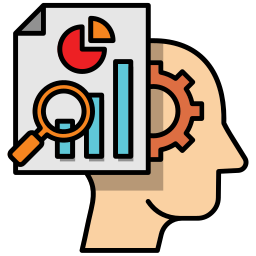Why Learning Software Is Not Enough: The Importance of Domain Knowledge for Mechanical Engineers
In today’s rapidly evolving technological landscape, mechanical engineers are increasingly required to possess proficiency in various software tools to design, simulate, and analyze complex systems. While mastering software is undoubtedly crucial, it’s equally important to emphasize the acquisition and application of domain knowledge within the field of mechanical engineering. Here’s why:
1. Contextual Understanding:
 Software proficiency allows you to execute tasks efficiently, but domain knowledge provides the context necessary to interpret results accurately. Understanding the underlying principles of mechanics, thermodynamics, materials science, and other core disciplines enables you to make informed decisions and optimizations based on real-world scenarios.
Software proficiency allows you to execute tasks efficiently, but domain knowledge provides the context necessary to interpret results accurately. Understanding the underlying principles of mechanics, thermodynamics, materials science, and other core disciplines enables you to make informed decisions and optimizations based on real-world scenarios.
2. Problem-Solving Agility:
![]() Mechanical engineering problems often require innovative solutions that go beyond what software algorithms can automate. Domain knowledge equips you with the ability to conceptualize and formulate solutions by leveraging your understanding of physical phenomena and engineering principles.
Mechanical engineering problems often require innovative solutions that go beyond what software algorithms can automate. Domain knowledge equips you with the ability to conceptualize and formulate solutions by leveraging your understanding of physical phenomena and engineering principles.
3. Integration of Multi-Disciplinary Concepts:
 Mechanical systems rarely operate in isolation; they interact with electrical, thermal, and fluidic systems, among others. Domain knowledge enables you to integrate these multi-disciplinary concepts effectively, facilitating holistic design approaches and ensuring compatibility across different engineering domains.
Mechanical systems rarely operate in isolation; they interact with electrical, thermal, and fluidic systems, among others. Domain knowledge enables you to integrate these multi-disciplinary concepts effectively, facilitating holistic design approaches and ensuring compatibility across different engineering domains.
4. Critical Analysis and Validation:
 Software outputs are only as reliable as the inputs and assumptions made during the modeling process. Domain knowledge empowers you to critically evaluate software-generated results, identify potential inaccuracies or limitations, and validate outcomes through practical testing and analysis.
Software outputs are only as reliable as the inputs and assumptions made during the modeling process. Domain knowledge empowers you to critically evaluate software-generated results, identify potential inaccuracies or limitations, and validate outcomes through practical testing and analysis.
5. Innovation and Future-Proofing:
 The mechanical engineering landscape continues to evolve with advancements in materials, manufacturing processes, and sustainability requirements. Deep domain expertise allows you to anticipate future trends, innovate new solutions, and adapt to emerging challenges effectively.
The mechanical engineering landscape continues to evolve with advancements in materials, manufacturing processes, and sustainability requirements. Deep domain expertise allows you to anticipate future trends, innovate new solutions, and adapt to emerging challenges effectively.
6. Effective Communication:
 Communicating technical concepts and design solutions with stakeholders, including clients, colleagues, and decision-makers, requires more than just software proficiency. Domain knowledge enables you to articulate complex ideas clearly, justify design choices, and build credibility as a knowledgeable engineer.
Communicating technical concepts and design solutions with stakeholders, including clients, colleagues, and decision-makers, requires more than just software proficiency. Domain knowledge enables you to articulate complex ideas clearly, justify design choices, and build credibility as a knowledgeable engineer.
Conclusion:
While proficiency in software tools is indispensable for modern mechanical engineers, it serves as a complement to, rather than a substitute for, deep domain knowledge. Investing in understanding fundamental principles and continuously expanding your expertise within the field will not only enhance your career prospects but also enable you to tackle complex engineering challenges with confidence and innovation.
In essence, integrating software skills with robust domain knowledge forms the cornerstone of becoming a truly proficient and impactful mechanical engineer in today’s competitive and dynamic engineering environment.
Don’t settle for just software proficiency.
Become a well-rounded mechanical engineer with the expertise that impresses employers.
Enroll with CADCAMGURU today!


